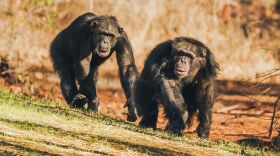
Nell Greenfieldboyce
Nell Greenfieldboyce is a NPR science correspondent.
With reporting focused on general science, NASA, and the intersection between technology and society, Greenfieldboyce has been on the science desk's technology beat since she joined NPR in 2005.
In that time Greenfieldboyce has reported on topics including the narwhals in Greenland, the ending of the space shuttle program, and the reasons why independent truckers don't want electronic tracking in their cabs.
Much of Greenfieldboyce's reporting reflects an interest in discovering how applied science and technology connects with people and culture. She has worked on stories spanning issues such as pet cloning, gene therapy, ballistics, and federal regulation of new technology.
Prior to NPR, Greenfieldboyce spent a decade working in print, mostly magazines including U.S. News & World Report and New Scientist.
A graduate of Johns Hopkins, earning her Bachelor's of Arts degree in social sciences and a Master's of Arts degree in science writing, Greenfieldboyce taught science writing for four years at the university. She was honored for her talents with the Evert Clark/Seth Payne Award for Young Science Journalists.
-
An image of what looks like a glowing orange donut is actually the first picture of the supermassive black hole at the center of the Milky Way, our home galaxy.
-
The CDC reports a historic increase in firearm deaths. During the pandemic, there has been a 35% increase in the firearm homicide rate, and suicides by firearm also are persistently high.
-
NASA and the European Space Agency are gearing up to bring home a pristine sample of Martian rock. But given the small chance of life on the red planet, they have to grapple with safety questions.
-
Millions of chickens and turkeys have been killed to control an avian flu outbreak, but the virus is also infecting wild birds. (Story first aired on Weekend Saturday on April 9, 2022.)
-
A study suggests babies are aware that people who are willing to share saliva, through kissing or sharing spoons, have especially close relationships. (Story aired on ATC on Jan. 20, 2022.)
-
A new look at some fossilized footprints shows that more than one species of human was walking upright around 3.6 million years ago. (This story originally aired on ATC on Dec. 2, 2021.)
-
All chimps managed by the National Institutes of Health that are currently eligible to go to a sanctuary have been moved there, but animal welfare advocates say more should be allowed to go.
-
With the James Webb Space Telescope safely deployed, many scientists want to use it. To minimize the effect of unconscious biases, they go through a process developed for the Hubble Space Telescope.
-
A study shows how much prey whales eat. It reveals how the global loss of whales changed ocean life in ways that may make it harder for them to rebound. (Story first aired on ATC on Nov. 11, 2021.)
-
As they count down the hours to the highly anticipated launch of NASA's powerful, $10 billion James Webb Space Telescope, astronomers hope for the best while fearing the worst.




